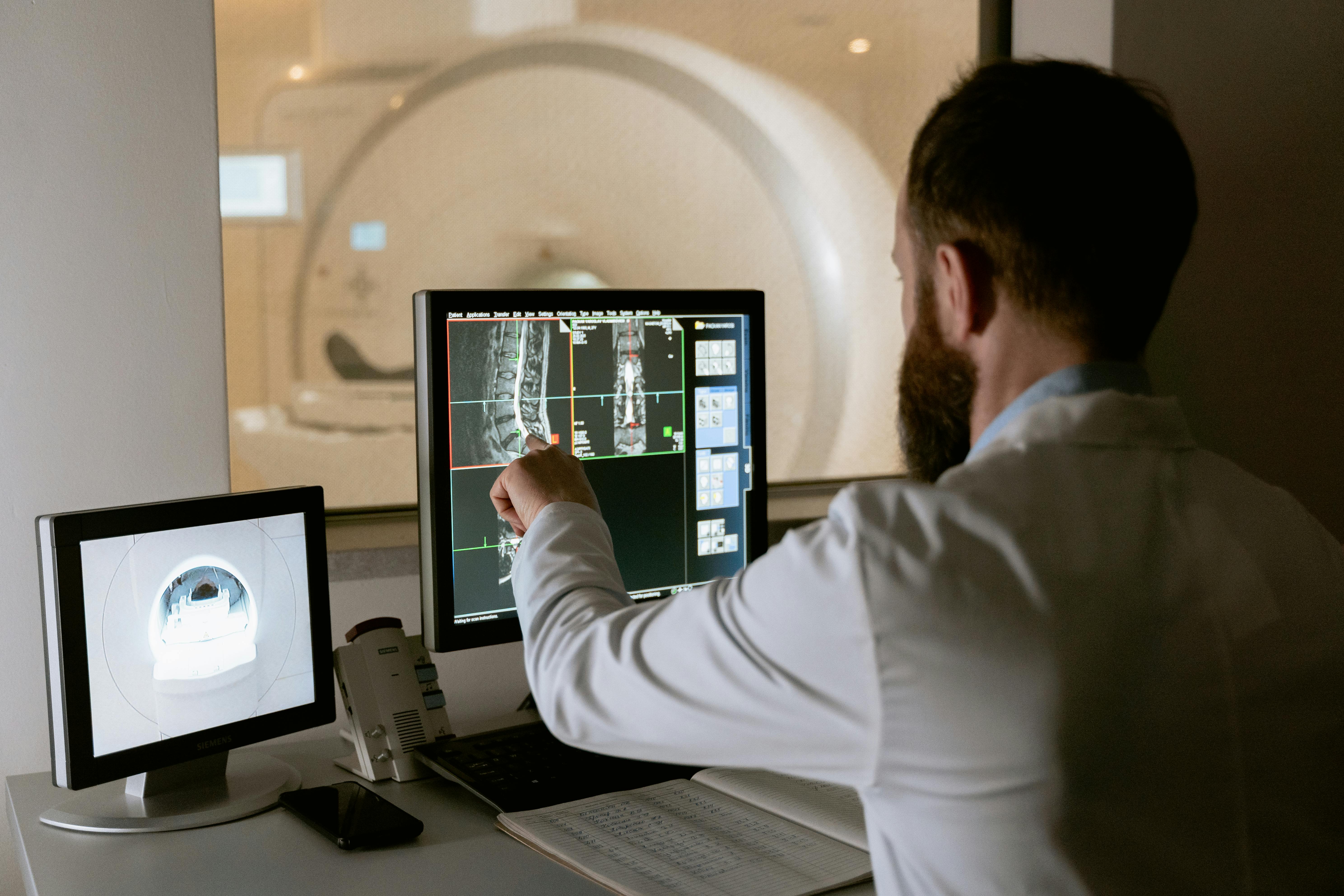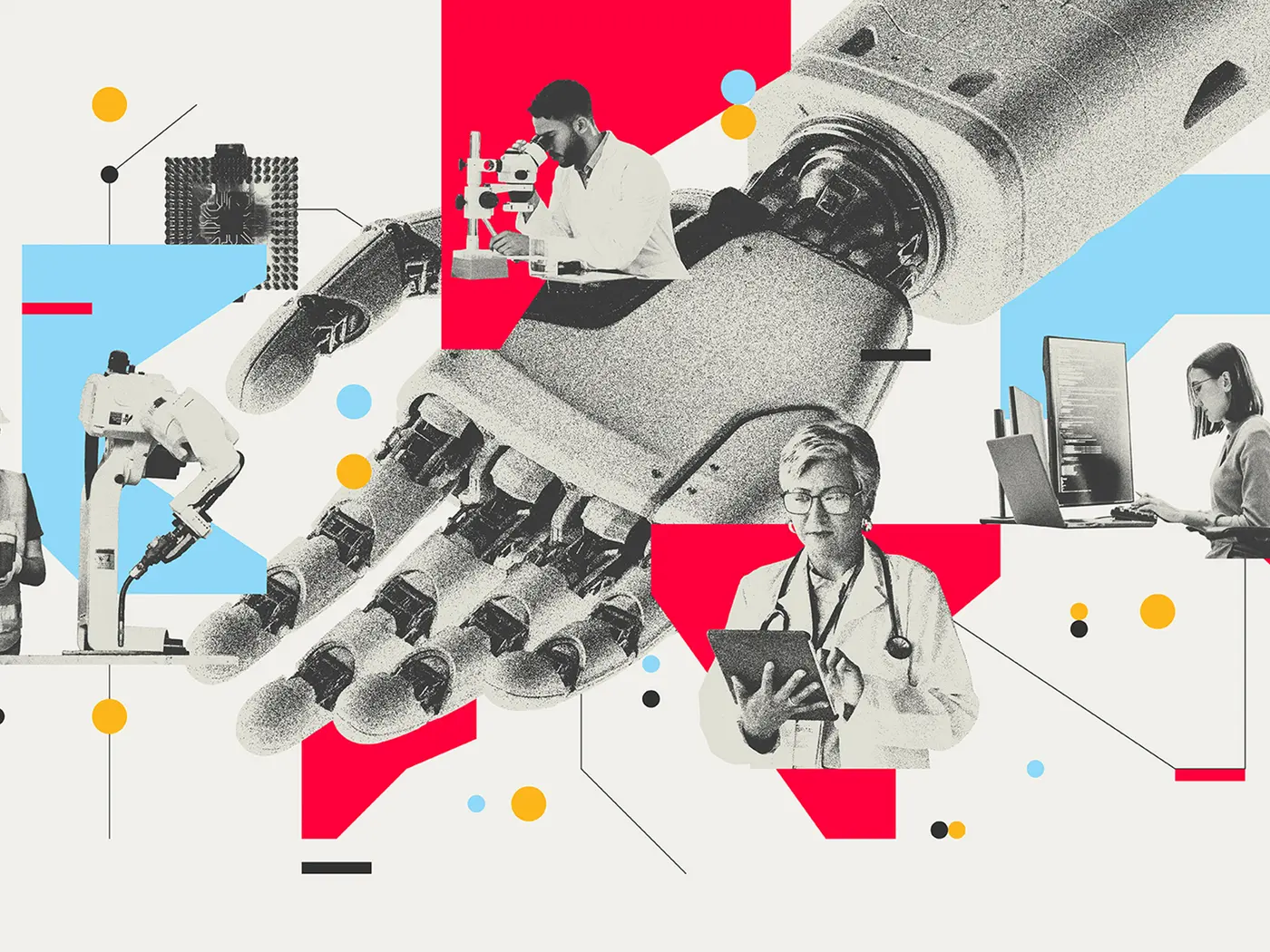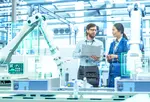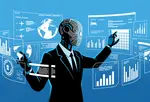Future of Work
At MIT Sloan, we’re leading the future of work. Through research and classroom teaching, we explore the technologies, systems, and leadership styles that profoundly affect organizations and workers everywhere. The MIT Sloan Work and Organization Studies Group studies what workers will need to succeed in jobs of the future and what leaders need to know to manage complex organizations and diverse teams; the MIT Institute for Work and Employment Research explores how work can be improved for both workers and organizations; and the MIT Initiative on the Digital Economy examines how people and companies can adapt to new ways of doing business. Courses taught by our faculty and coaching offered by the MIT Leadership Center help students gain the fundamental knowledge of organizational structures and processes and develop the necessary skills to lead the workforce of the future.
Featured Article
Choose the human path for AI
Why It Matters
To realize the greatest gains from artificial intelligence, we must make the future of work more human, not less.
Learn MoreWhat 2 MIT experts are thinking about AI and work
David Autor and Neil Thompson on the importance of using AI tools to collaborate with humans and the nuances of how AI affects productivity and replaces workers.
Future manufacturing: How to solve the US productivity paradox
U.S. manufacturing productivity remains flat despite an uptick in new factory and workforce growth in recent years. MIT experts suggest three solutions.
Agentic AI, explained
The age of agentic AI — systems that are semi- or fully autonomous and can act on their own — has arrived. Here’s what you need to know, according to MIT experts.
Buçinca to Join IWER Faculty
Zana Buçinca, a scholar whose research interests include human-AI interaction and the future of work, will be joining the faculty of the MIT Institute for Work and Employment Research (IWER) in the fall of 2026 when she joins the MIT Sloan School of Management’s Work and Organization Studies group ...
How to boost pro-worker AI in your company
As AI capabilities advance, the window for shaping whether the technology augments or replaces workers is narrowing. Decision makers need to step up, MIT researchers say.
How the MIT EMBA Helps Reimagine Careers and Confidence
For Adriana Bokel Herde, EMBA ’17, the MIT Executive MBA was a turning point—one that reshaped her confidence, expanded her career across industries, and redefined her approach to principled leadership. From overcoming imposter syndrome to applying hands-on, people-centered problem solving, Bokel He...
Can an Employee Participation Initiative Improve Mental Health?
Can giving low-wage workers more of a voice on the job improve their mental health? A just-published paper in the American Journal of Public Health finds signs that the answer may be “yes.”

A Field Guide to Deploying AI Agents in Clinical Practice
In this paper, authors Jack Gallifant, Katherine C. Kellogg, Matt Butler et al. present "a practitioner-oriented field manual for deploying generative agents that use electronic health records."
Craft Schedules That Work for Everyone
This article by Donald Sull of MIT Sloan and Alexander Kowalski of Cornell University's ILR School draws on Kowalski's research on scheduling practices in e-commerce fulfillment centers.
The Fulfillment Center Intervention Study: Protocol for a group-randomized control trial of a participatory workplace intervention
This journal article by Erin L. Kelly et al. describes the protocol for the Fulfillment Center Intervention Study.









